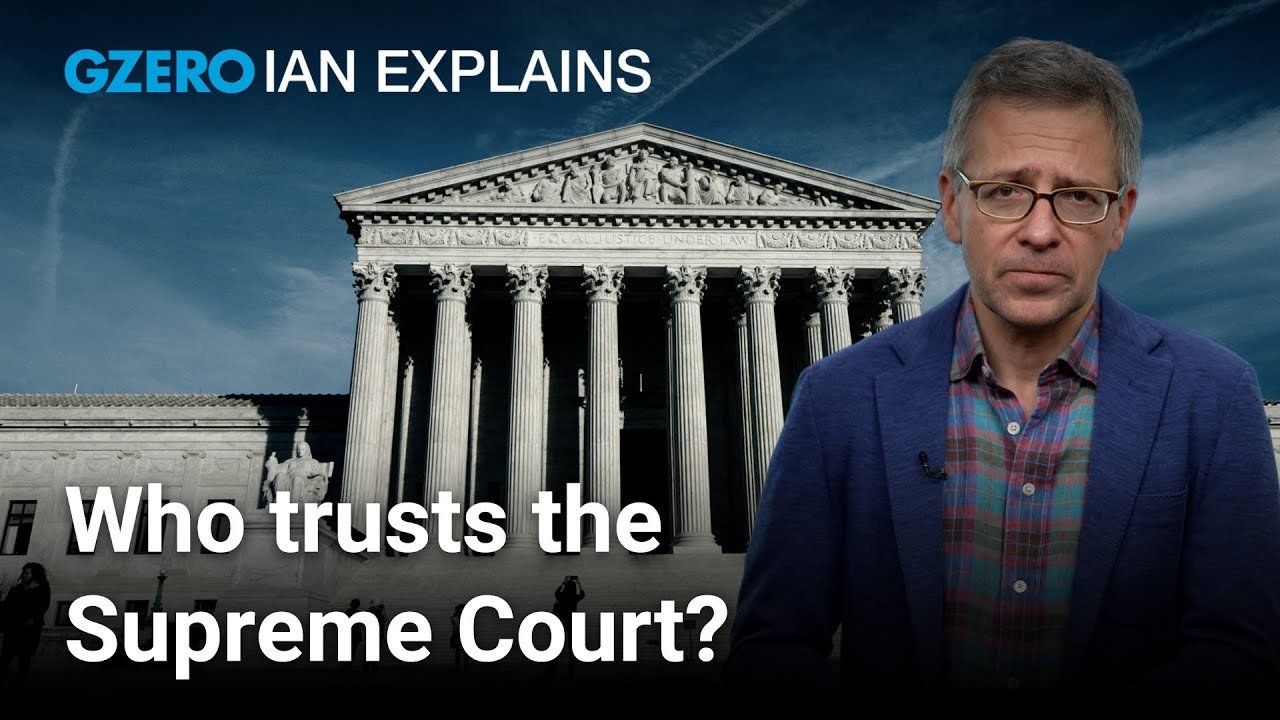
Public approval for the US Supreme Court is at an all-time low. But how much does that matter really? On Ian Explains, Ian Bremmer breaks down why voters believe the Court has become more partisan and politically motivated in recent years and whether public perception makes any difference in how it operates.
According to Gallup polling, SCOTUS has had a strong net approval rating, much higher than the President and Congress, for most of the last 25 years. But as of September 2023, 58% of Americans disapproved of the Supreme Court, a record high. The Court’s credibility has come under fire following ethics scandals involving Justice Clarence Thomas and a string of 6-3 conservative majority opinions, like the June 2022 Dobbs v. Jackson Women’s Health Organization decision overturning Roe v. Wade, increasingly out of step with public opinion.
It’s a class question of separation of powers: The justices aren’t elected, and the judicial branch of government isn’t designed to respond to popular will. But if SCOTUS falls out of step with voters completely, it risks losing the very thing that gives it legitimacy: public faith.
Catch GZERO World with Ian Bremmer every week at gzeromedia.com/gzeroworld or on US public television. Check local listings.
- SCOTUS adopts new ethics code as public trust plummets ›
- Who cares if the Supreme Court justices like each other? ›
- Supreme Court divided over Trump’s absolute immunity claims ›
- US Supreme Court ends affirmative action in college admissions ›
- Why Clarence Thomas has eroded trust in the US Supreme Court ›
- The major Supreme Court decisions to watch for in June - GZERO Media ›
- US election disinformation: How myths like non-citizen voting erode public trust - GZERO Media ›